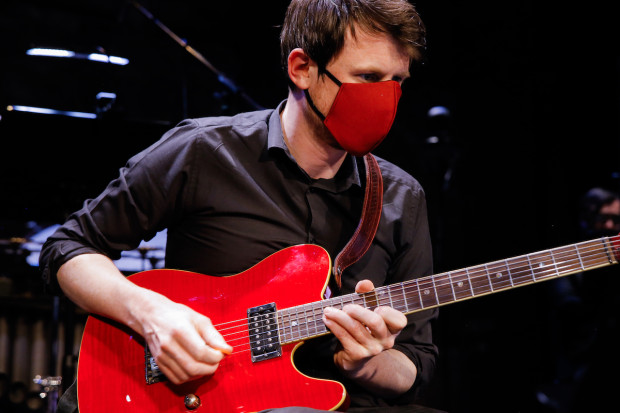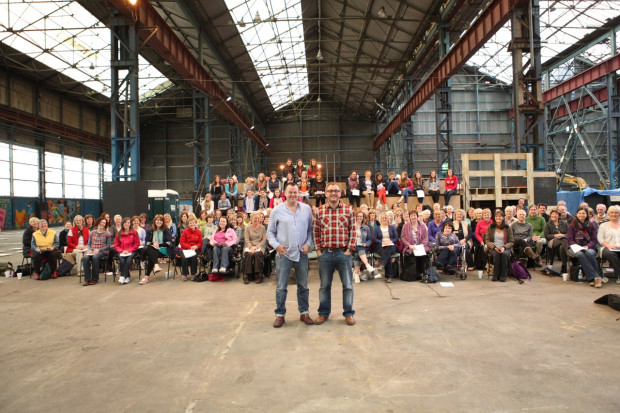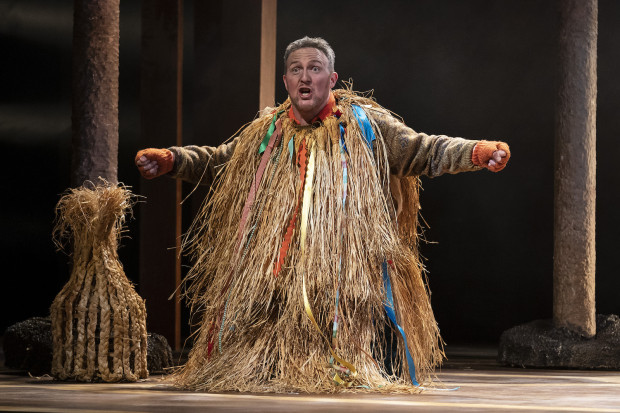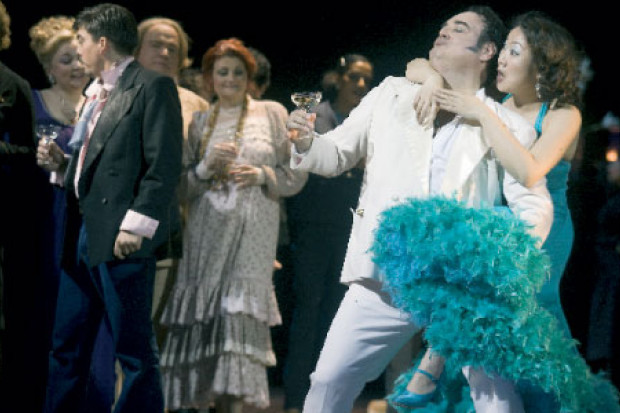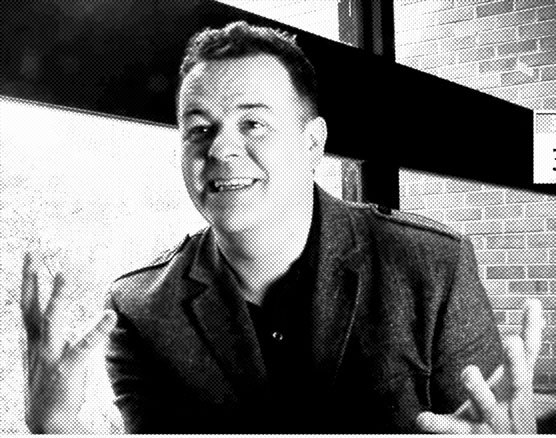
Northword: Here Be Monsters
With composers, the discrepancy between the life lived and the life evoked is, let’s face it, downright comical. How many times have you heard words to this effect: ‘I want to find the perfect balance between stillness and motion’ or ‘I want the listener to approach this music with a blankness of mind; we are looking for the essence of sound itself’?
It’s admirable, I guess, that an individual should spend his or her life looking for the perfect geometrical expression of the essential unity of form and content. But is such a pursuit ever to be taken seriously? Is it even realistic to expect such a journey to be necessary in the first place before someone can demand an audience? And do audiences want to witness this journey? The creation of music, the actual discipline, is much more an exercise of living with frustrations and accepting compromises. When composers talk about the perfectibility of expression or the integrity of the sound wave should we just laugh? Isn’t it possible that listeners want their philosophical adventures to be a little more lived, a little more earthbound?
How about this for contrast: a newly married couple tries in vain to assemble a flat-pack double bed. The man is tormented by a seven-foot green monster (real or imagined, the audience is not quite sure), but over time, and even as the bed remains stubbornly unmade, the wife becomes pregnant. Some people, not least the husband, feel that the father of the baby may be the monster itself. Imagine this scenario played against the flotsam and jetsam of modern popular culture, residua of waltzes, tangos and the blues. Imagine also a central exchange between the young couple as the wife offers an enticement to find a way out of their less than enthralling existence in a song called ‘Boobs in a Box’. A different approach, you’ll agree.
This is one of the central vignettes of the new opera Dumbworld created by composer Brian Irvine and writer/director John McIlduff, a work-in-progress that was given an airing in Belfast and Dublin recently ahead of its appearance at the 2009 Wexford Opera Festival. The easy inhabitance simultaneously within the quotidian and the fantastic is familiar territory for anyone who knows these two artists, kindred spirits, and both Belfast-born. Brian Irvine’s real contribution to the music scene in the North has been his commitment to creating a style that draws directly from the community around him. His twelve-piece band, the Brian Irvine Ensemble, is made up of fine musicians, sure, but musicians who learnt their craft in rock and punk bands, jazz line-ups, the pub circuit and the recording studio as much as the classical world. At the heart of what these musicians do is an innate theatricality, the players take on distinct characters as they deliver the material. Dumbworld is a natural extension. Here, players and singers become a composite dramatic ensemble eliminating the dividing line between pit and stage.
But Dumbworld may become more than just a stage-work. It could be an important template for large and ambitious performance projects. Dumbworld exists as a limited company established with the help of Cathie McKimm, formerly of Down District Council and Downpatrick Opera Fringe, now an independent consultant and facilitator, who wants to match the creativity of artists and musicians with a new creativity in the production and distribution of artistic product.
For McKimm there is a major problem with arts provision and development in the North and she sees the need to look outside of the current funding and organisational structures that exist to support new work and ideas. Cathie McKimm’s theory goes something like this: we’ve created a monster, a mediating, greedy creature who absorbs energy and opportunity and to whom we are all overly obedient. And what is the name of this monster? ‘Artistic policy,’ says McKimm, ‘it fills the vacuum created by those of us too scared to have opinions about what is good or bad art, and we toss it like a coin to make decisions about things we’d rather not have responsibility for. Why is innovative art so hard to come by these days? Why do so few large-scale ambitious projects ever get off the ground? Why is so much of what we routinely see in our theatres so dull and mediocre? Because it’s hard for talented newcomers and new forms to duke the monster and duke the way in which the monster insists things get done. We talk to the monster, and we serve the monster, instead of communicating with each other about what is best and what’s the best way to achieve it.’
Cathie McKimm sees possibilities with Dumbworld. It starts with the basic assumption that ideas last longer than organisations. If we believe this, then it follows that the artistic idea, and in turn its realisation in product, should be more highly valued than the arts organisation. So, Dumbworld Ltd exists as a creative energy first and foremost, not as an instrument of job creation or of the development of tourism (artistic policy’s chief weapons of propaganda). People of vision and talent – musicians, designers, costumers, writers – will form a team to best serve the realisation of the project. If the company needs to exist for decades it will, if not, it won’t.
Dumbworld has been a difficult project to realise. It’s ambitious and risky and the way forward is far from clear. Irvine, McIlduff and McKimm are still debating the ways in which a large-scale project like this should develop.
What may be emerging in the North is radical because it challenges the basic assumption that the arts sector should be developed for its own sake, whether it produces anything that anybody wants to see or not. People who currently do well in the status quo and who have secured permanent placements and steady careers will be naturally resistant. Even artists, denied their mediating monster, may find the whole thing unsettling. But the idea is out there, and needs to be addressed.
Published on 1 September 2008
Peter Rosser (1970–2014) was a composer, writer and music lecturer. He was born in London and moved to Belfast in 1990, where he studied composition at the University of Ulster and was awarded a DPhil in 1997. His music has been performed at the Spitalfields Festival in London, the Belfast Festival at Queen’s and by the Crash Ensemble in Dublin. In 2011 the Arts Council acknowledged his contribution to the arts in Northern Ireland through a Major Individual Artist Award. He used this award to write his Second String Quartet, which was premiered in 2012 by the JACK Quartet at the opening concert at Belfast's new Metropolitan Arts Centre (The MAC). Peter Rosser also wrote extensively on a wide range of music genres, with essays published in The Journal of Music, The Wire, Perspectives of New Music and the Crescent Journal. He died following an illness on 24 November 2014, aged 44.














